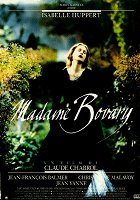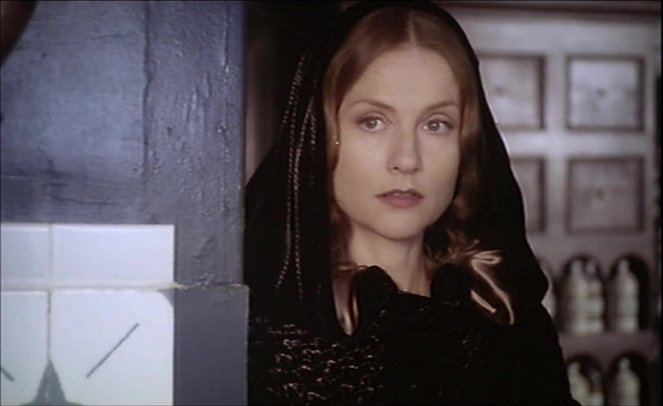Reżyseria:
Claude ChabrolScenariusz:
Claude ChabrolZdjęcia:
Jean RabierObsada:
Isabelle Huppert, Jean-François Balmer, Christophe Malavoy, Jean Yanne, Lucas Belvaux, François Périer, Louis-Do de Lencquesaing, François Maistre (więcej)Opisy(1)
Francja, XIX wiek. Prowincjonalny lekarz Karol Bovary czuje się samotny po śmierci żony i zaczyna coraz częściej odwiedzać Rouaulta, jednego ze swoich pacjentów. Wdowiec ulega urokowi jego córki Emmy i szybko postanawia się z nią ożenić. Ich małżeństwo nie jest jednak szczęśliwe. Kobieta nie może zadomowić się w nowym miejscu. Cierpi na nudę i pogardza swoim ograniczonym mężem. Emma po cichu marzy o miłości idealnej, o której czyta w romantycznych powieściach. W końcu żądza wrażeń popycha ją w ramiona arystokraty Rudolfa Boulanger oraz studenta prawa Leona Dupuis. Obydwa romanse są burzliwe, a także dramatyczne w skutkach. (HBO)
(więcej)Materiały wideo (2)
Recenzje (2)
Mr. and Mrs. Bovary are in love. The trouble is that Mrs. Bovary loves someone else in a different way. Mr. Bovary is a settled man, somewhat older, who loves with marital love. Mrs. Bovary is a romantic maiden, passionate by nature, who constantly seeks new pleasures. It soon becomes clear that this cannot end well. It is not so much about Mrs. Bovary's lover, but rather the fact that she never learned how to calculate, and therefore cannot estimate the consequences of her actions. Eventually, her lifestyle becomes overwhelming and consumes her. Chabrol made his film based on a renowned classic, and judging by the comments, he strictly adheres to the original. If that's true, then I will gladly avoid the book. The film is somewhat uninteresting, and only the casting of the femme fatale of French cinema and one of the most talented actresses of her generation, Isabelle Huppert, barely saves the film and earns it 3 stars. She is probably the only reason why I will ever remember the careless and somewhat selfish Mrs. Bovary. Chabrol's film suffers from excessive academicism and the inability to truly captivate the audience with cinematic means. This is a typical film that benefits from its reputation. Overall impression: 50%.
()
I'm not sure about the clarity of Bovary's psychological development, given that the very beginning of her life is missing in the film. And if we don't know where her inner need for an idealized love relationship in which she could become a romantic icon herself came from, it's not easy to follow Huppert's endless ramblings. The biggest dramaturgical slap in the face is the indifferent enumeration of daughter Berta's subsequent fates in the end credits as if it were the mere reading of items from a shopping list. However, I think I've discovered another of the classic substances that I won't mind exploring in multiple adaptations.
()



Reklama